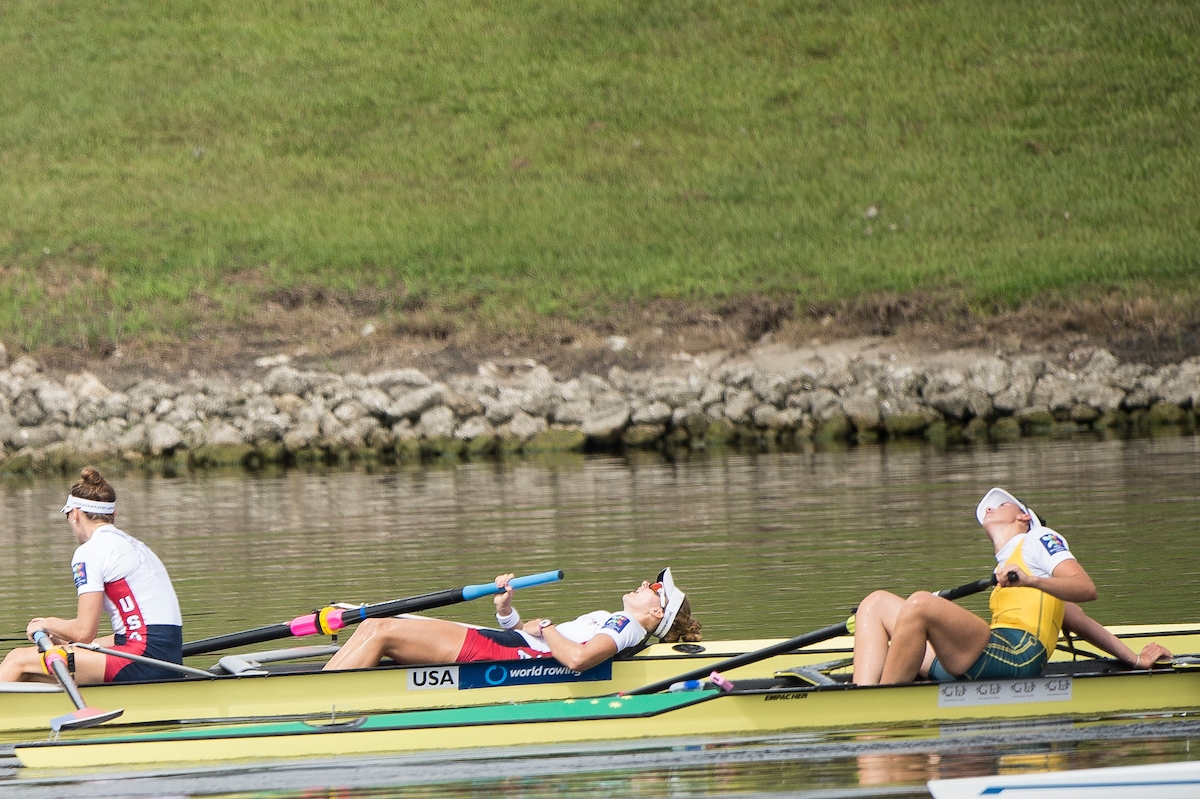BY TAYLOR BROWN
PHOTO BY PETER SPURRIER
To continue reading…
This article is exclusively for Rowing News subscribers. For as little as $5 a month, you can get access to the best quality, independent reporting on all the issues that matter to the North American rowing community.
Already a subscriber? Login
I often get asked questions about maintaining focus under fatigue.
The truth is, when we’re fatigued, it’s hard to maintain focus. That’s because we’re hardwired to avoid discomfort.
When we put ourselves in uncomfortable situations, such as rowing workouts, our minds may get distracted by the discomfort, and we often have trouble concentrating on such important elements as technique.
Here are three tips for managing distraction and keeping your mind focused, even in gut-check moments.
Set an Intention
An intention is an aim that guides action. An intention is not carrying out the action itself but the impetus behind the action. Setting an intention simply means setting an aim and committing not only to what you want to do but also how you want to do it.
Often, when we’re trying to make changes in our technique or get to a certain number on the ergometer, we get so caught up in the endpoint that we don’t pay attention to how we’re going about the process.
Set an intention by stating how you will approach the process. Then put it in present terms rather than future terms, as if it already exists: I am patient, I am relaxed, I am persistent.
When it gets hard, return to your intentions. Intentions will be your guides for action.
Take a Mental Break
The energy needed to focus is not unlimited, and focusing intensely for a long time can be draining.
If you feel burned out by focusing narrowly on one thing, allow your focus to widen a bit. Notice one thing with each of your five senses. What is one thing you can see, hear, smell, taste, and touch? This allows your focus to relax, giving you more mental energy to refocus.
Another way to take a mental break is to pay attention to your breath. When you’re resting, breathe in deeply through your nose for four seconds, hold for four seconds, and breathe out through your mouth for four seconds.
As you’re doing this, focus your attention on the experience of breathing, specifically the sensations and sounds. If any other thoughts or distractions come to mind, notice them, and then return to your breathing.
This exercise will reset your mind. Instead of focusing on distractions, you’ll be clearheaded and ready to focus on improvement.
Ask Yourself Permission
It’s easy to let fatigue dictate your behavior. When you’re fatigued, of course, it’s natural to react by getting distracted and wanting to back off. However, it is possible to experience fatigue without letting it affect your performance
Ask yourself: “Is this a mental limit or physical barrier that is limiting me right now?”
The answer to this question is almost always a mental limit.
After you’ve reckoned with this, ask yourself: “Can I accept this discomfort and redirect my attention?”
Since this limit is created by the mind, it can be overcome by the mind. Asking yourself permission allows you to create space from the fatigue and choose how you’ll proceed.
Once you’ve given yourself permission to stay with the discomfort of fatigue, you can direct your attention back to your intention and technical focus.
Focusing when fatigued is very challenging, so creating an action plan to deploy in these scenarios is important. Use these three tips to create your focusing-under-fatigue action plan and bring more intentionality and direction to your rowing.

